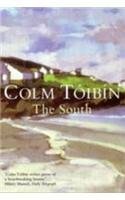Take a photo of a barcode or cover
adventurous
challenging
slow-paced
Plot or Character Driven:
A mix
Strong character development:
Yes
Loveable characters:
No
Diverse cast of characters:
Yes
Flaws of characters a main focus:
Yes
adventurous
dark
reflective
sad
medium-paced
Different tone and pace and somberness than I’m used to with historical fiction. Simultaneously not, but also completely, centered around the location and environment. Ended up really liking it though and wanting to see where it was going to go
Even in Tóibín’s first novel he has already set out the tropes (I’m using that word in the kindest terms) that have made his novels such staples of modern Irish literature. We have a woman in distress, Katherine, who’s exiled herself to Barcelona in order to forget her past in Ireland. A keen painter, Katherine is content with her new life until she meets a man one day and her past finally catches up with her. Reading Tóibín’s trademark filigree prose always reminds me of standing before one of Paul Henry’s vast cloudscapes. The utter simplistic beauty which draws you in and urges you examine every detail down to the stems and the dots. Hard to think this is a first novel. Tóibín is the master.
Ratings:
Writing 4
Story line 3
Characters 3
Emotional impact 2
Overall rating 3
Writing 4
Story line 3
Characters 3
Emotional impact 2
Overall rating 3
When your first Toibin book is [b:Brooklyn|4954833|Brooklyn|Colm Tóibín|https://d.gr-assets.com/books/1406806402s/4954833.jpg|5020624] the bar is set pretty high for others. I thought this one was truly "Ok". Those two little letters pretty much summed up my reaction as I read the story. Perhaps my world view is a bit skewed in this post "[b:Eat, Pray, Love|19501|Eat, Pray, Love|Elizabeth Gilbert|https://d.gr-assets.com/books/1294023455s/19501.jpg|3352398]" era and I was expecting some glorious life epiphany to happen to the main character when she fled her unfulfilled married life (husband and son) in Ireland to paint in Spain. Katherine finds a man that she follows through Spain and lives as his "wife" though quick to correct "mi no es espousa" when asked; and lives simply waiting on the dole from her mom to carry them through. (Miguel was thanking the heavens he stumbled across this chick in the bar). The story follows the couple over the next few years and is simply told. One of the beauties of Toibin's writing, in my opinion, is that it is simple yet it is not. The act of making love can be a foreshadowing of Miguel's attitude towards Katherine in the future as well as an indication of his consideration of her in the present. The flow of characters into their lives that make brief appearances, yet, have an impact on how they live and survive. I truly enjoy Toibin's style of writing. The prose and words cause me to slow my reading and think about the scene, the deeper meaning, and just relax.
I read this book in the "winter of my loneliness" when I was exiled in North Carolina. The bleak starkness of the prose complimented my mood and the fact that the heroine has fled Ireland for the harsh climes of Spain resonated.
Well...I liked the beginning, but then it just got weird. I dunno. I skimmed a lot of the end just to find out what happened.
On Nancy Pearl's list, this book comes in as a "writing style" book. As I'm definitely a character reader, with a chaser of plot, it didn't always work for me - I found it to be cold and the characters to be unlikable.
Having said that, there are plot points that I have found myself pondering in the day or so since finishing.
Having said that, there are plot points that I have found myself pondering in the day or so since finishing.
Reading this book, I was reminded why I love Toibin as much as I do. This rich, languid, metaphorical story slowly unfolds and crescendos like the music so frequently referenced throughout. Politics, religion, class and responsibility are all thematically touched on but the work never felt didactic or preachy. This book is simply masterful.
This is Colm Tobin's first novel and it is a little jerky in places, but it is a strong and moving tale about a woman leaving her husband in 1950's Ireland to strike out on a new life.



